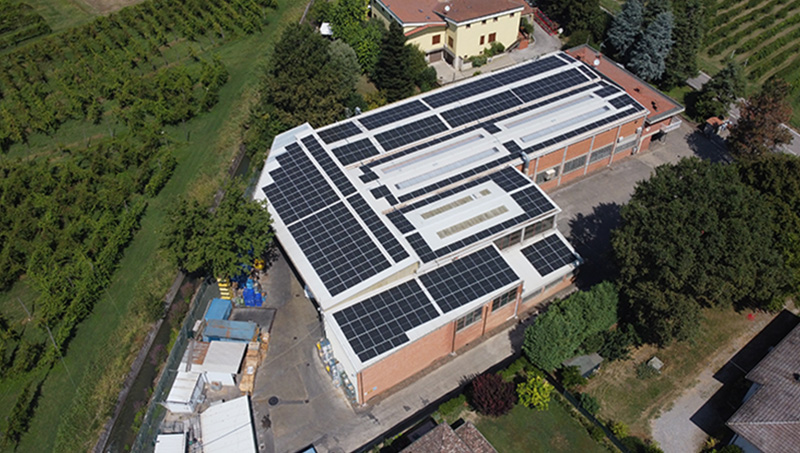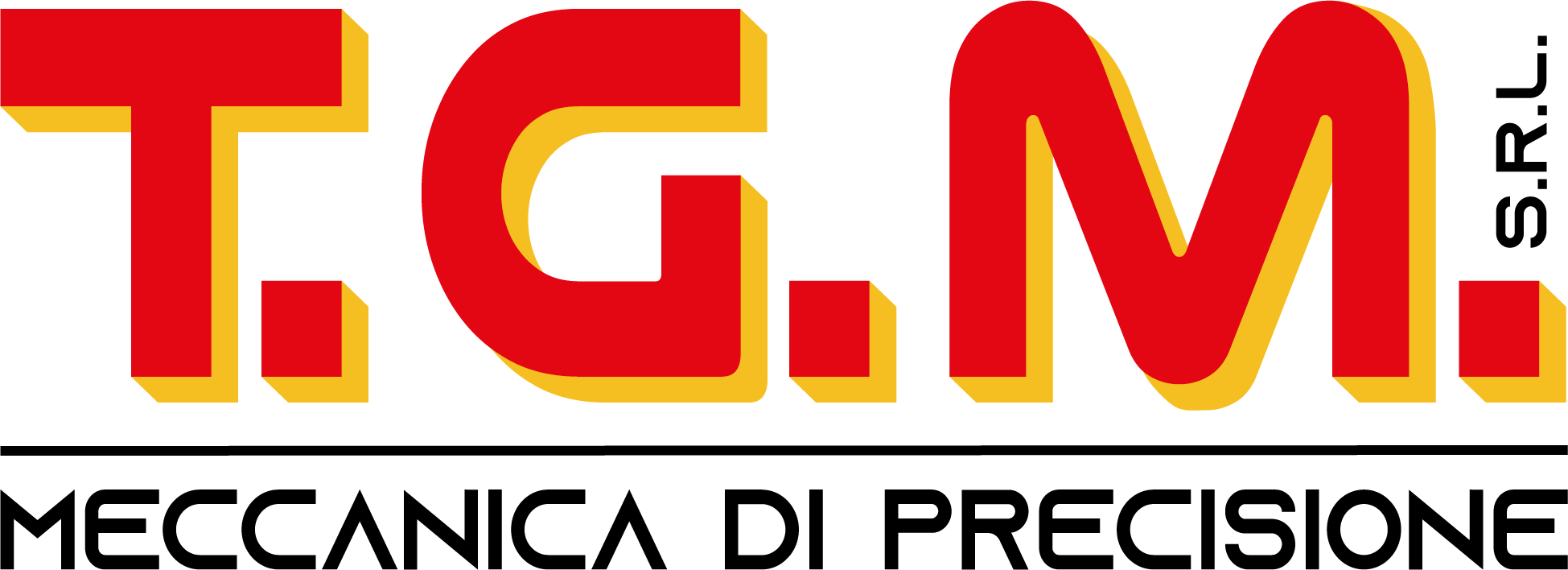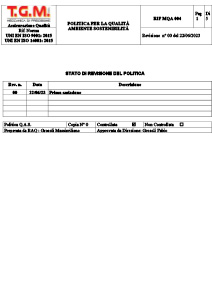ENVIRONMENTAL PROTECTION
Since it was founded in 1965, TGM Srl, a company operating in the engineering sector, has directed its organisational efforts towards achieving and maintaining a high level of quality in the products manufactured, the work carried out and the levels of service offered, its image and corporate reputation, becoming a well-established company with deep roots in the territory and serving important national and international players.
With this in mind, TGM Srl, aware of the importance of adopting sustainability-oriented strategies and organisational models in order to ensure long-lasting economic development, plans, organises and manages its activities, in a manner that is integrated with its own business processes and objectives, as well as with the more general company management, so as to contribute to:
▪ to the protection of the environment (soil, subsoil, atmosphere and water bodies) and biodiversity (animal and plant)
▪ the prevention of pollution;
▪ the protection of workers’ health and safety;
▪ respect for workers’ rights;
▪ respect for fundamental human rights;
▪ compliance with mandatory regulations applicable to company activities, processes, products and services;
▪ meeting the needs and expectations of stakeholders.

T.G.M. completed and put into the grid the photovoltaic plant of 195 KwP in November 2023, The plant produces about 40% of the company’s needs, thus reducing the demand from the grid, feeding the energy produced on non-productive days and reducing Co2 production, another step by the company on the road to environmental protection.
MISSION
TGM Srl, for the application of its Quality and Environment Policy, considers it fundamental to:
▪ To bring the Company to levels of excellence in the products manufactured, the workmanship performed and the levels of service offered, such as to be appreciated by an increasing number of customers;
▪ Adoption and continuous improvement, of a Quality and Environmental Management System compliant with UNI EN ISO 9001 and UNI EN ISO 14001 standards, certified by accredited third parties;
▪ Integrating as far as possible in the strategic – operational planning of the Company specific actions to address:
→ the needs and expectations of all stakeholders significant to achieving the expected results and objectives of business improvement objectives;
→ he risks and opportunities for improvement identified for company activities, processes, products and services
▪ Scrupulous planning and timely control of company activities directly impacting on:
→ compliance with product quality requirements, whether these arise internally as a result of company decisions or determined by customers;
→ on the Company’s environmental impacts and performance;
→ compliance with mandatory requirements applicable to the product, company activities and related environmental impacts;
▪ Acceptance of only those requests for which full compliance with the applicable quality and mandatory requirements can be ensured, depending on the company’s know-how and resources;
▪ Containing waste related to product manufacture and processing in terms of defective products, loss of time, production waste and non-value-added activities;
▪ Implementing a responsible procurement process based on research, evaluation, qualification and careful monitoring of suppliers of products and services based on:
→ impact and criticality of supplies on:
- quality of products manufactured, work performed and expected service levels;
- expected company environmental performance;
- levels of worker health and safety.
→ inclination towards a corporate management model oriented towards sustainability that integrates product, service, process, organisational, economic, environmental, occupational health and safety and social aspects.
▪ Sensitisation of suppliers of raw materials and external processing, as critical, to the adoption of a sustainability-oriented business management model that integrates product, service, process, organisational, economic, environmental, occupational health and safety and social aspects;
▪ Research, evaluation and careful monitoring of suppliers of products and services considered critical for the quality of what is produced, for environmental performance and for the health and safety of workers, establishing with these suppliers a relationship of mutual cooperation and trust, to allow for continuous improvement of company and supplier processes;
▪ Business practices and activities that fully respect the needs, expectations and rights of all stakeholders involved, as well as anti-corruption, anti-laundering, anti-monopoly (Antitrust) and export (Export) legislation, in order to:
→ contribute to the promotion and protection of effective and concrete market competition;
→ ensure compliance with embargoes and eco-sanctions;
→ avoid any illegal trade.
▪ Customer loyalty through:
→ Supplies that conform in terms of product quality and quantity;
→ Respect for delivery deadlines;
→ Respect for packaging specifications
→ Correctness of the documentation accompanying the supplies requested;
→ Speed and flexibility in responding to requests.
▪ Constant attention to the needs of customers and their satisfaction, so that, on the basis of the results of analyses relating to the degree of appreciation of the company’s supplies, it is possible to pursue constant improvement of the products made, the workmanship performed and the levels of service proposed, as well as to undertake initiatives aimed at increasing customer awareness of the value of the products made and the workmanship performed;
▪ Constant education and training of personnel in order to ensure:
→ the dissemination of a culture of quality, environmental and occupational health and safety throughout the company’s workforce;
→ systematically providing the necessary skills to ensure effective and efficient operation of company processes, as well as their improvement
▪ Enhancement of human resources, at every level, in order to stimulate ever greater motivation, involvement of personnel, awareness of the importance of their role and continuous improvement:
→ of company processes and products;
→ of environmental protection (soil, subsoil, atmosphere and water bodies) and biodiversity (animal and plant);
→ of pollution prevention;
→ of occupational health and safety;
→ of working environments and overall efficiency.
▪ Involvement, active participation, effective and punctual collaboration of personnel in problem solving and improvement actions starting from the sharing of stakeholders’ needs and expectations, risks and opportunities for improvement and improvement objectives;
▪ Systematic and scrupulous management and maintenance activities, verification and control of company infrastructure in compliance with the applicable mandatory regulations in order to ensure:
→ technological levels adequate to company needs and expectations;
→ production effectiveness and efficiency;
→ optimisation of the consumption of natural resources (material and energy);
→ prevention of accidents and emergencies hazardous to the environment, health and safety of workers.
▪ Planning, implementation, control and improvement of operational controls of environmental impacts related to the company’s activities, processes, products and services, as far as possible integrated into the company’s strategic – operational planning, so that they are pursued:
→ The protection of the soil, subsoil and groundwater through the adoption of appropriate procedural,
organisational and infrastructural solutions to minimise the risk of spills or other soil contamination;
→ Optimisation of the consumption of raw materials, technical and auxiliary products in order to reduce the production of waste and refuse;
→ Optimisation of the consumption of water resources by avoiding improper uses in order to reduce the production of waste and refuse;
→ Systematic and scrupulous management of chemicals that ensures the prevention of environmental contamination,
compliance with applicable mandatory legislation and the absence of banned hazardous substances, as well as favouring the use of non-hazardous chemicals;
→ Systematic and scrupulous management of waste that ensures the prevention of environmental contamination, compliance with applicable mandatory legislation, proper recovery or disposal, favouring repair, reuse, recycling and recovery operations;
→ Optimising and reducing the consumption of energy resources through the adoption of specific strategies aimed at the behaviour of people, the organisation of company activities, the use of low energy consumption technologies and the use of renewable energy sources;
→ Reducing atmospheric emissions of climate-altering greenhouse gases through the use of alternative processes and technologies that avoid their emission, favouring the overall decarbonisation of company processes;
→ The protection of fauna and flora by avoiding that noise emissions, vibrations, odour emissions and electromagnetic emissions due to company activities can impact and degrade the ecosystem and animal and plant biodiversity surrounding the company site;
→ The improvement of the company’s environmental performance in terms of decreasing negative environmental impacts and improving positive environmental impacts;
→ Preventing environmentally hazardous emergencies and adopting appropriate procedural, organisational and infrastructural solutions for their effective and efficient management.
▪ Ensuring the safety, health and security of employees and third parties working on behalf of the Company, both with a view to preventing accidents, injuries and occupational diseases and with a view to protection and rescue;
▪ Pursuing the objective of ‘zero accidents’ through the systematic and scrupulous assessment of risks to health and safety in the workplace and the consequent application of prevention and protection measures;
▪ Strict compliance with labour contracts and relevant applicable regulations, guaranteeing working conditions that respect workers’ rights, privacy, equal opportunities and fundamental human rights;
▪ Observance of the legislative, regulatory and regulatory requirements of the sector, as well as the regulations voluntarily adopted,
applicable to the company’s activities, processes, products and services, as well as to the related environmental impacts and risks for the health and safety of workers, with reference to the results of the context analysis, environmental analysis and assessment of risks for occupational health and safety
▪ Maintaining fruitful relations with all the stakeholders identified in the context in which the Company operates, so that the company’s performance is continuously improved, also in relation to environmental, health and safety at work, social responsibility and development of the territory’s resources.
Specific objectives consistent with the strategic-operational vision expressed herein, measurable goals and operational programmes for the pursuit of the Quality and Environmental Policy, as well as the allocation of resources, are defined and updated, with the contribution of all Company Managers and ratified at periodic review meetings by the General Management of the Quality and Environmental Management System.

